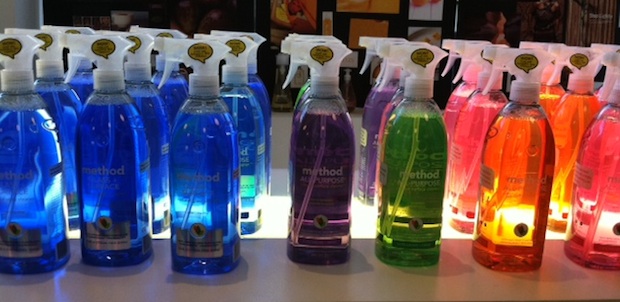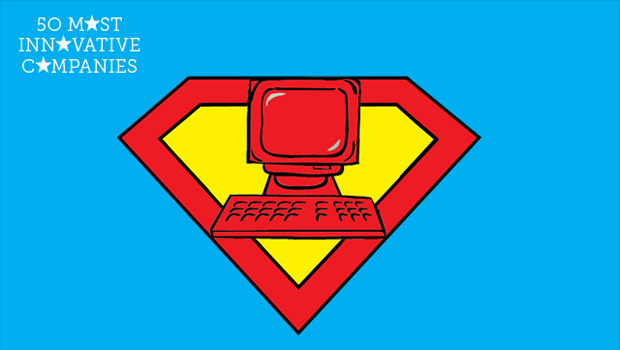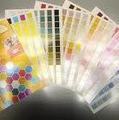Numbers show that people are giving up on non-toxic cleaning products. But they're really just giving up the ones that are doing it for show.

Are people so fed up with greenwashing that they're giving up entirely on non-toxic cleaning products? Last month's New York Times article entitled "As Consumers Cut Spending, 'Green' Products Lose Allure" seems to be a downer at first. Sales of Clorox Greenworks and other "green" cleaning products from big brands have dropped precipitously over the past few years--perhaps because of cost or simply because consumers don't care about environmental responsibility during a recession. Commence rending of garments.
But buried in the article is this:
Sales held up at smaller, and more expensive, brands like Method and Seventh Generation, Mr. Powers suggested, because those customers tended to be more affluent and more wedded to environmental causes. Both companies say they had double-digit growth in 2010 after a flat year in 2009.That may be only part of the story. We had the chance to visit Method's offices earlier this week, where cofounder (and occasional Fast Company contributor) Eric Ryan explained his side of the issue. "It's not that clean products are failing by any means... it's that the players that have gone into the green space are not doing it in an authentic way," he says.
Ryan likens the "played-out" eco-friendly cleaning product trend to what we have already seen with food, "where the nonauthentic brands that tried to put a proposition of health and wellness out there failed, but the authentic brands are doing great." What would you trust more for your health: Natural Cheetos or Kashi crackers?
Ryan acknowledges that the big players--Clorox Greenworks, Arm & Hammer Essentials, and so forth--did help grow the eco-friendly cleaning product category through low prices, but ultimately "they brought in people who weren't committed to moving towards the cause of sustainability."
So while we can't begrudge companies like Clorox for making non-toxic cleaning products widely accessible, they aren't winning out. It may be more of a credibility problem than anything else. If these companies want to bring in repeat customers, they have to convince them that it's more than just branding--and they can do that by making customers care about what they're buying.
[Image: Ariel Schwartz]
Reach Ariel Schwartz via Twitter or email.

01 / Dawning Information Industry >>
For being China's leading supercomputer-maker. Its Nebulae is the world's third-fastest, and Dawning aims to take on its chipmaker, Nvidia, with its own chip, called the Loongson.
02 / Huawei >>
For building the future of telecoms. Forty-five of the world's top 50 telecoms companies have used Huawei products--perhaps the greatest recognition that it's been able to cast off China's image as a nation of imitators rather than innovators. The company has created products for demanding customers in unexpected places, including systems able to withstand Siberia's frigid winters and bulletproof machinery for a Mexican telecom operator.
03 / Changchun Dacheng Industrial Group
For being the first company in the world to mass-produce plant-based glycols, which can be used as a building block for cosmetics, plastics, and household cleaning products. (These types of glycols are typically derived from oil.) It recently announced a partnership with a Danish company, Novozymes, to develop tech that turn agricultural waste into sugars, which can then be turned into glycols.
04 / ZTE
For its whiz-bang mobile products. The telecoms-equipment maker will build whatever a company wants, without worrying about branding. Its highest-profile foray into the U.S. market: The Sprint ZTE Peel, a skin for the iPod Touch that enables users to get 3G wireless access, wherever they are, without a phone contract.
05 / CSR
For leading the charge on high-speed rail in the U.S. The Chinese upstart (and GE partner) will bid for California's high-speed rail project; its rivals include Kawasaki, the Japanese heavy-manufacturing giant. In the past year, CSR has also won contracts to supply locomotives and train equipment to Saudi Arabia, Malaysia, and Brazil.
06 / Tencent
For turning online gaming into a massive profit generator. Tencent also boasts well over 100 million users, and has teamed with Groupon to capitalize on the discount-buying trend in China.
07 / WuXi PharmaTech
For reporting stellar earnings and growing its reputation as the leader in outsourced contract research--despite a failed merger with Charles River.
08 / BYD
For developing cutting-edge battery tech, even as it audaciously attempts to grow its plug-in hybrid auto sales. For the past two years, BYD's F3 sedan has been a top-selling car in China, and as much as 40% of the world's cell phones use BYD batteries. The company is also implementing a massive solar-power project in an effort to move the Chinese electrical grid toward renewable energy, because it understands that an electric car in present-day, coal-fueled China isn't all that emissions-friendly.
09 / MAD Architects
For being one of the first Chinese design firms to win major projects outside of China. MAD is the atelier of Ma Yansong, a 35-year-old architecture rock star whose curvaceous Absolute Towers in Toronto--dubbed the Marilyn Monroe buildings by locals, because of their voluptuousness--will open later this year.
10 / Hermès
For launching a domestic brand focused exclusively on the Chinese market--a bold and clever move that will help the traditional French fashion house capitalize on the growing Chinese obsession with the high-end (especially those labels made famous outside the country).
Browse our list of The World's Most Innovative Companies 2011
[Image by Andrew Hur]
“I love no 3 Changchun's mass-produce plant-based glycols as well as Hermes ShangXia store that sells modern designed traditional arts and craft stuff, relatively affordable but really beautifully crafted products made from wood, silks and ceramics”

In an effort to reduce its carbon footprint, Ford is trying to replace the synthetic plastic in its car with a natural material produced from dandelions. Researchers at Ford and Ohio State University have found that the white substance present in the roots of Russian dandelion can be used to make a natural material that can act as an alternative to synthetic rubber. Furthermore, this material is durable as well as eco friendly.
Researchers have already started growing dandelions at the Ohio Agricultural Research and Development Center. The species that have been grown is stronger than one we usually find growing in the gardens. Special care is being taken to grow these plants in greenhouses so that they could be tested to find out if they have the potential to replace synthetic rubber.
In order to conserve our ecosystem, Ford has already switched over to eco friendly products in many areas, such as soy foam seat cushions, wheat straw-filled plastic, recycled resins for underbody systems, recycled yarn on seat covers and natural-fiber plastic for interior components. If the test on dandelions yields positive results, Ford can stop the use of synthetic plastic as well. These efforts of Ford will surely help us in achieving a pollution-free environment.
Via: CNet

As our fossil fuel is depleting day by day, scientists all over the world are trying to search other fuel sources. A team of scientists from Clean Energy Research Centre at the University of B.C. are working on a process that can convert carbon dioxide into fuel.
According to David Wilkinson, executive director of Clean Energy Research Centre, the carbon dioxide that is emitted from the factories can be combined with water to produce methane, methanol, formic acid and other fuels. The major problem with this process is that it requires a lot of energy because carbon dioxide is a very stable molecule and difficult to break. Scientists are planning to use solar energy to initiate the reaction.
The concept behind this process is to use electrodes made of sheets of titanium oxide coated with platinum, copper and other materials that act as catalysts and with the help of solar energy convert carbon dioxide to useful fuel in the presence of water. This process will basically result in an energy cycle, where the fuel produced will again burn to give carbon dioxide and water as byproducts.
The scientists are presently facing problem in developing microscopically small structures in the catalyzing material that are actually able to extract a required amount of fuel from the process. At present, the National Aeronautics and Space Administration is also using a similar process on Gemini space missions to produce water from the carbon dioxide present in cabin.
If this research is successful, it will help in eliminating significant amount of carbon dioxide from the atmosphere. As we all know that carbon dioxide is a major greenhouse gas, its removal will definitely help in controlling global warming.
Scientists have first planned to test this process on a small scale. If they are able to get a positive result, this process will be installed in factories where production of carbon dioxide is high.
Source: vancouversun

Although technology is developing at a fast rate, many countries are still struggling for electricity. It is very obvious that places without electricity do not find much use of the new and modern gadgets coming up everyday.
In order to spread technology globally, the electricity problem has to be sorted out soon. Samsung has shown its serious concern about this problem and is working on the introduction of a netbook that can be powered by sunlight. It is being assumed that some small solar panels will be installed in the netbook to provide the required power from the sun.
For now, the solar netbook is still under consideration but Samsung is already holding a forum at Kenya to showcase its special electronics made for Africa. If the company succeeds in developing a solar netbook, it will surely change the existing scenario of countries like Africa.
Source: mobilemag

We all have a refrigerator at our place and it typically looks like a rectangular box in which food items are stuffed. But if you try and peep in the future, the concept of refrigerators will change drastically. When every other thing is going mobile, why should a fridge stay fixed at a place? Electrolux future refrigerator will change the whole picture, with its energy-efficient and supple design.
The fridge will be more like a mobile phone and will be touch sensitive. It will aptly react to human warmth. When someone places his palm on the door, transparency will be turned on because of which all the stuff present inside will become visible without even opening the door. This will save both energy and time, as a person will select the item before the door will be opened. For easy usage, food items will be placed in a single row and not one behind the other. You will be able to select items precisely and the door will move in a horizontal direction. Simply slide the door you want to open and grab food of your choice.
Electrolux future refrigerator will be caked with stretch material/smart polymers, which will fluff up according to the shape of the materials. Depending on the need, size of the fridge can be increased or decreased. This feature will bring down the energy usage drastically. Also, these intelligent polymers will make sure that no odor infiltrates through the multiple zones of cooling. Energy is used in a sensible manner, as energy mounts up in those areas that have bumps, making sure that no power is lost in parts where it is not needed.
Electrolux future refrigerator scales high on the energy-efficiency level and the stretch polymer takes it a few steps higher on the graph. After a good 100 years when saving energy will be a top priority, due to the shortage of resources, this fridge will be an instant hit with so many futuristic qualities.
Via: behance

A lot many times when people are excited, they express it in a celebratory hand gesture by slapping the flat of their palm and hand against the palm and flat hand of their partner. This is often tagged as a ‘high five’. Getting the same experience in your everyday life is Da Deng, who has designed the Bye-5 light switch.
Working the whole day leaves us drained. The result is such that at times, we don’t even bother to perform necessary tasks like switching off the light. But with Bye-5 you will wait for the right time to switch off the lights. Shaped in the form of an open palm is this light switch, which has been crafted from a soft material.

The hand-shaped switch is very eye-catching and will force the user to give a high-five with a smile on their face. Before leaving the house, all you have to do is, give a high-five to Bye-5 and the lights will turn off automatically. After this a striking LED dim light will be stimulated, which will signal that the lights have been switched off.
This will not only save energy but will take care of the ever deteriorating environment as well. So, next time when you are going out and feeling lazy to switch off the lights, all you have to do is slap your hand against Bye-5 light switch and say, “Give me a High-five.”


Via: dadeng

Small is beautiful! Thinking on the same lines, I open the gadget covered in my favorite color case, what I get is a laptop. After preparing some documents, I think of some browsing. Few more folds and I have a tablet. When I wanted to read some e-books, I flexed it again to form a book. And, finally I fold the gadget in half and it’s back in the attractive case. Now, that’s an envisioned hands-on experience on a ‘Flexbook’, a concept designed by a Taiwan-based designer Hao-chun huang.

Modern world demands the gadgets to be beautiful, flexible, and portable. This multi-functional design apart from being beautiful supports the fact to be flexible and portable. The flexible structure with a center joint allows you to customize the device into a wide range of configurations. You can fold the device to take the shape and use it as a gaming device, e-reader, tablet, or laptop. If a device is foldable, it is surely portable. With so many inbuilt functionalities, the design never compromises on looks. Also, the designer envisions the users to select their own colors and patterned textures for the skin of their ‘Flexbook’. Small is more than just being beautiful!

The project was designed for the ‘FUJITSU design award: a life with future computing’ competition, organized by designboom in collaboration with FUJITSU.

Via: Designboom
Last month, Inhabitat’s Editor-in-Chief Jill Fehrenbacher had the pleasure of curating a panel about sustainability and philanthropy in the fashion industry for the Afingo Fashion Forum. She brought together some of the biggest names in green fashion — including eco-model/entrepreneur Summer Rayne Oakes, fashion consultant Julie Gilhart (formerly of Barneys New York), Melissa Kushner of Goods for Good, and more — to discuss the future of eco-fashion. Hit the jump to watch our exclusive video and hear what the experts have to say.
Permalink |
Add to
del.icio.us |
digg
Post tags: afingo fashion forum, afingo fashion forum video, eco fashion panel sustainable fashion panel, eco-fashion, ecouterre afingo fashion, ecouterre video, green fashion, jill fehrenbacher, Sustainable Fashion



Comments by our Users
Be the first to write a comment for this item.